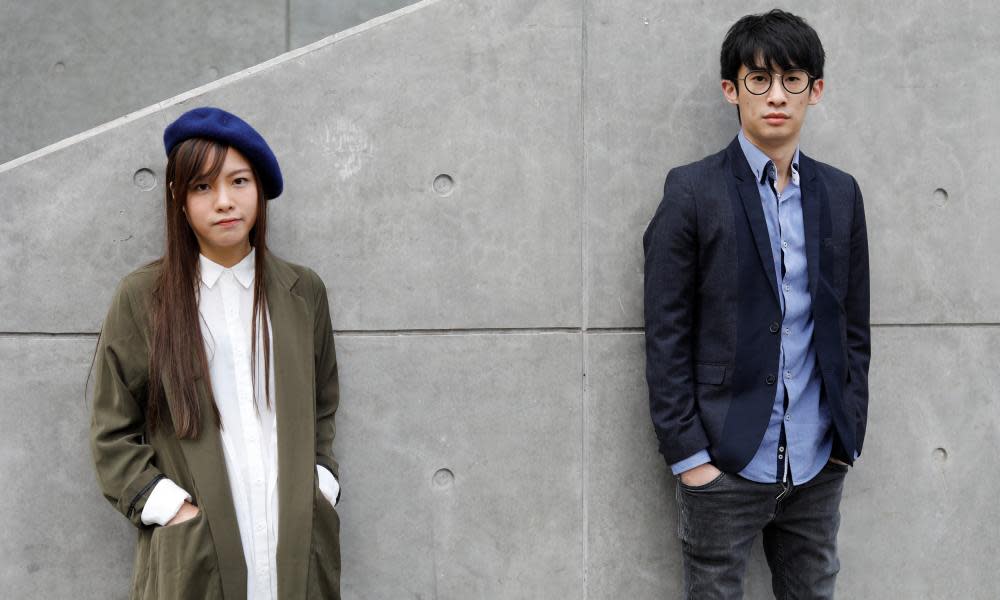Hong Kong charges pro-independence activists over China protest

Hong Kong police have charged two former pro-independence politicians over scuffles in the legislature, amid a widening crackdown on dissenting voices in the former British colony.
Yau Wai-ching and Sixtus “Baggio” Leung were disqualified from the city’s legislature last year after a dramatic anti-China protest during their swearing-in ceremony in October.
During the ceremony, Yau and Leung, who have both called for a complete split with mainland China, altered the text of their oaths, declaring allegiance to the “Hong Kong nation”. They also unfurled banners that said “Hong Kong is not China” and used an expletive to refer to China.
The protest enraged officials in Beijing and led Hong Kong’s chief executive to launch an unprecedented legal challenge, seeking to remove the pair from office.
They were taken from their homes at 7am and were charged with unlawful assembly and forcible entry over their attempt to retake their oaths, which were declared invalid.
That attempt included the pair storming the legislative chambers and ended in scuffles with security guards, three of whom were treated at hospital. Pro-Beijing politicians called the police for assistance at the time.
“The government’s regime will do whatever it takes to destroy and wipe out Hong Kong’s cries for self-determination, Yau said after she was released on bail on Wednesday. “But we will never give up.”
Yau described her detention in a Facebook post, saying she had been moved around the city and questioned at various police stations. At least three of their assistants were also detained by police, but it is not clear if they were charged.
A police spokesman declined to comment on the case.
Yau and Leung could face up to seven years in jail if convicted of both offences under Hong Kong’s public order ordinance.
“The actions of the Chinese Communist party and their puppets in Hong Kong are pure evil,” their political party Youngspiration said. “Evil such as this deprives Hong Kong people of the freedom and democracy they cherish.”

“Hongkongers’ attempts to achieve the democratic autonomy guaranteed in the Sino-British joint declaration have been in vain. We shall struggle against evil on the streets.”
Hong Kong’s deeply unpopular outgoing leader, Leung Chun-ying, has taken unprecedented steps to quell dissent following a massive pro-democracy street protest in 2014.
Aside from ejecting Yau and Leung from office, Leung launched legal challenges against four additional pro-democracy politicians. Those cases have yet to be decided but one politician, Nathan Law, quoted Gandhi and stated his opposition to the current president of the legislature at the end of his oath.
Law said of the detentions: “The Hong Kong government’s detention of the disqualified lawmakers shows the government’s intention to move forward in liquidating the opposition camp and democratic forces.
“Political conflict stemming from parliamentary disputes should be resolved within the legislative council.”
Earlier this month, and just one day after Leung’s successor was elected in a controversial election, police announced they would charge nine people involved in the 2014 democracy protests.
Two of those charged are politicians. Any legislator jailed for more than a month could lose their seat.

 Yahoo News
Yahoo News 
